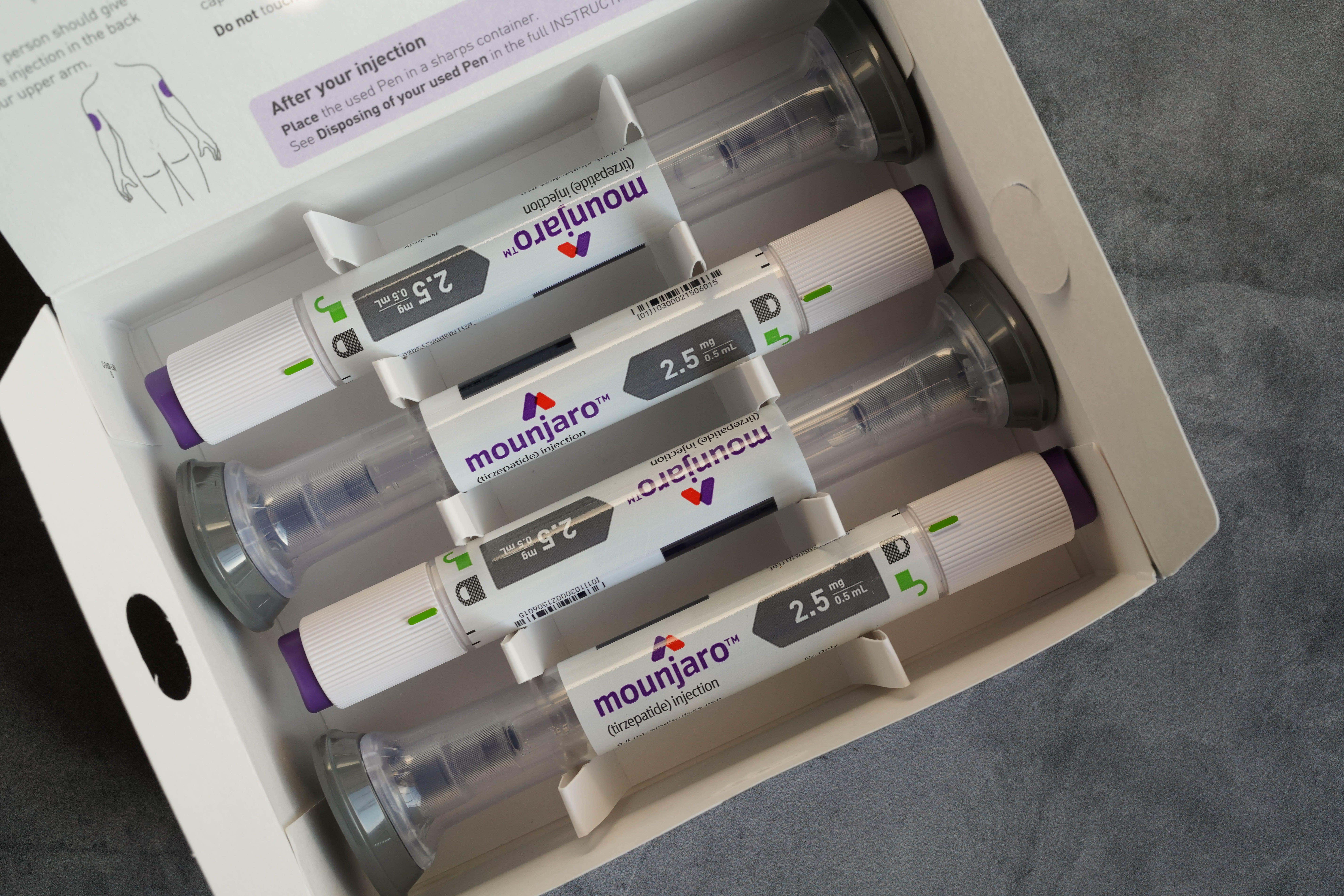
Ozempic has been in the public consciousness now long enough that we’ve seen the dramatic weight loss effects it can deliver. But we’ve also seen people complaining of the side effects, from vomiting and headaches to terrifying seizures and extreme dehydration, as described by Lottie Moss, the 26-year-old model and sister of Kate Moss. It also costs around £300 a month.
The latest buzz is around a way to achieve weight loss, without the extreme negative effects and high cost: by micro-dosing the drug. “Micro-dosing typically involves starting with lower-than-standard doses of medications like Ozempic and other semaglutides, which provide benefits in appetite control and metabolic support with reduced risk of side effects” according to Dr Tamsin Lewis, Longevity Lead at the Mayfair-based SOLICE.
The semaglutide family of drugs, which includes Ozempic as well as Wegovy, which can be prescribed on the NHS to those with Type 2 diabetes, are medications that mimic the hormone GLP-1 (glucagon-like peptide 1). This hormone, which is found naturally in the body, enhances insulin secretion, decreases glucagon levels, and can slow gastric emptying, leading to better blood sugar control and reduced appetite.

While the drugs were developed to treat Type 2 diabetes, they have gained infamy for their dramatic weight loss effects (in the States, the FDA has approved them to help tackle obesity). A clinical trial published in the New England Journal of Medicine, showed those who used a semaglutide lost an average of 15% of their body weight after 68 weeks. In the UK, semaglutides can also be prescribed by private doctors. “I would offer it quite freely to anyone with a BMI over 27,” Dr Denning says.
She says the results are amazing. “The most startling thing I’ve seen is that it stops that conversation in the brain, both around food and alcohol, that some people really battle with,” says Dr Wendy Denning, director of central-London based The Health Doctors. “When people are on these drugs, they don’t have to have a debate whether they should or shouldn’t eat that.” One of her patients has recently dropped from a size 22 to a size 12. “It has been a really brilliant tool for her.”
The problem has been the side effects. Dr Denning had one patient “who was vomiting all week; I’ve had two patients who needed their gall bladders removed. There are real concerns.”

Some medical professionals feel that that the starting doses for semaglutides can often start too high. Doses for Ozempic start at 0.25 milligrams weekly and could go up to 2mg. Instead, some argue that micro-dosing – which could be as little as one-10th of the standard dose – allows for a more tailored approach.
It’s a practice that is much talked about in the United States, with doctors including Dr Tyna Moore, who was recently interviewed on the podcast Diary of a CEO, and Dr Lauren Fitzgerald, touting the benefits. It’s catching on here, too. “Although it’s still relatively niche here, micro-dosing GLP-1 is becoming an appealing option for our patients for its metabolic, anti-inflammatory, and cognitive benefits,” according to Dr Lewis. In addition to those looking for weight loss, she says that the clinic is “seeing more interest from slim individuals, particularly women, who are exploring GLP-1 agonists” for brain health and longevity benefits.
Dr Lewis says micro-dosing both Ozempic and another brand called Mounjaro have shown “positive effects”, “but Mounjaro may have an advantage for certain individuals” in part, because “early data suggests Mounjaro might have less of an effect on muscle loss compared to Ozempic, which is crucial for those undergoing weight loss.”
It's not to say that micro-dosing is without any risk. “Even at micro doses, GLP-1 agonists can cause side effects such as nausea, digestive issues, and in rare cases, more serious complications like pancreatitis,” Dr Lewis says. “While micro-dosing tends to reduce these risks, it’s still important to monitor for any side effects. This is why close medical supervision is crucial, to ensure safety and effectiveness.” She also says we need to think long term. “While these medications may offer significant benefits, we don’t yet fully understand the effects of prolonged use in individuals without diabetes or obesity. Regular follow-ups and assessments are essential.”

She assesses each client on a case-by-case basis to ascertain an appropriate dosage “and their progress is closely monitored. This level of attention allows us to use these medications thoughtfully, ensuring they align with the individual’s health goals and are safe for them.”She stresses that no one should buy medication online or take without medical supervision.
While there are anecdotal reports of the benefits of micro-dosing, there are currently no clinical studies on the practice. Amongst her own patients, Dr Denning is sceptical about its efficacy. “Most people come to me for weight loss, and I’ve seen that if they don’t take the standard dose, then they don’t lose weight.” Where she does see micro-dosing work effectively is as she is trying to wean patients off the drugs. “I try not to ever put them on too high a dose, and I’m always thinking, “how can we come off it?” Micro-dosing really works well as we’re coming down.”
For those hoping for a magic pill that erase the need for good nutrition and exercise, semaglutides are not that. “One of the real concerns is sarcopenia, which is muscle wasting – particularly for women in menopause as some of our muscle is converted to fat at this time if we are not exercising and weight training, even without Ozempic,” Dr Denning says. "Less muscle means your body will burn less calories naturally.” The muscle wasteage is accelerated on any sudden weight loss diet, including using semaglutides. “So, I’m really very hot on people weight training and exercising, as well as getting adequate protein in their diets.” Dr Lewis advises at least 1.2g of protein per kg of body weight. London-based nutritionist Amy Cottrell adds that you can further stimulate the natural release of GLP-1 by “eating fibre-rich foods like vegetables, legumes, and whole grains”as well as “manage stress and focus on good quality sleep to further bolster the action of the GLP-1 hormone.”
Cottrell thinks that good nutrition should be considered – before experimenting with micro-dosing. “While micro-dosing Ozempic might provide the desired results that people are seeking in the short-term, the truth is that like a lot of pharmaceutical drugs, they aren’t there to encourage people to make healthier choices and can often negate a desire to do so,” she says. “Instead, looking towards supporting healthy GLP-1 levels without the use of unnecessary medication is a way to foster a more sustainable approach to our wellbeing, and one where we take ownership of our nutrition and lifestyle choices.”







